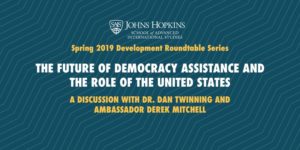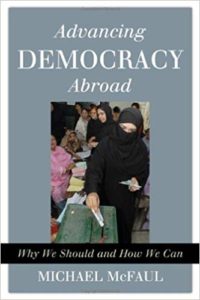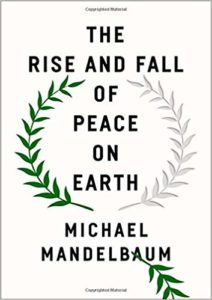 Authoritarian populist leaders may seek to undermine democratic institutions, but recent developments in Brazil, Hungary, Slovakia and Turkey provide encouragement that liberal political forces are showing some signs of life in several tipping-point countries, notes Slate’s Joshua Keating.
Authoritarian populist leaders may seek to undermine democratic institutions, but recent developments in Brazil, Hungary, Slovakia and Turkey provide encouragement that liberal political forces are showing some signs of life in several tipping-point countries, notes Slate’s Joshua Keating.
How might the operation of democracy in the United States affect the U.S. role in the world, particularly in terms of defending and promoting democracy and criticizing and resisting authoritarian and illiberal forms of government? The Congressional Research Service asks in a recent report, U.S. Role in the World: Background and Issues for Congress.
Recent developments have highlighted five key strains that have been weakening the political foundations of American internationalism, CRS adds:
- First, since the end of the Cold War, it has become harder for Americans to identify precisely why the United States must undertake such extraordinary exertions to shape the global order. Without a pressing, easily identifiable global threat, in other words, it is harder to intuitively understand what American alliances, forward force deployments, and other internationalist initiatives are for.
 Second, although U.S. internationalism has proven very valuable in shaping a congenial international system, it is undeniable that aspects of that tradition—such as nation building missions in Afghanistan and Iraq—have proven costly and unrewarding in recent years. Not surprisingly, many Americans are thus questioning if the resources that the country devotes to foreign policy are being used effectively…
Second, although U.S. internationalism has proven very valuable in shaping a congenial international system, it is undeniable that aspects of that tradition—such as nation building missions in Afghanistan and Iraq—have proven costly and unrewarding in recent years. Not surprisingly, many Americans are thus questioning if the resources that the country devotes to foreign policy are being used effectively…- Third, the credibility of the U.S. foreign policy establishment has also been weakened over the past 15 years. This is because policy elites in both parties pursued policies—the Iraq War under President George W. Bush, the subsequent withdrawal from Iraq and creation of a security vacuum in that country under President Barack Obama—that led to high profile disasters….
- Fourth, U.S. internationalism has been weakened by the declining economic fortunes of the working and middle classes—a phenomenon that has made those groups less enthusiastic about bearing the costs and burdens associated with U.S. foreign policy. ….
- Fifth, and finally, one can discern among many voters an amorphous but powerful sense that U.S. internationalism has become unmoored from U.S. nationalism—that America’s governing classes have pursued an agenda that has worked nicely for the well-to-do, but brought fewer benefits to the ordinary Americans whom U.S. foreign policy is meant to serve….
“The bottom line is that American internationalism is not dead yet, but that it faces serious long-term maladies that could, perhaps, ultimately prove fatal,” CRS suggests.
 Defending democracy against illiberal and authoritarian forces is essential to maintaining global stability, argues Michael Mandelbaum, author of, “The Rise and Fall of Peace on Earth.”
Defending democracy against illiberal and authoritarian forces is essential to maintaining global stability, argues Michael Mandelbaum, author of, “The Rise and Fall of Peace on Earth.”
“The principal disturbers of the peace — Russia, China, and Iran — are all dictatorships that seek popular support, can no longer get it through economic growth, don’t have the option of getting it through democracy, and in fact fear that democratic demands and democratic forces will unseat them,” he contends. “Their aggressive policies are designed to protect their regimes against, most of all, democracy.”
While the spread of freedom and democracy has been very much to America’s advantage, the United States is poorly equipped to foster the cluster of norms, habits, and institutions on which they depend in the authoritarian states currently destabilizing the international order, Mandelbaum adds.
Indeed, promoting democracy and human rights provides a competitive advantage as a positive force for advancing both our own interests and those of our partners around the world, argues Mark S. Dieker, Director of the Office of African Affairs in the State Department’s Bureau of Democracy, Human Rights, and Labor.







